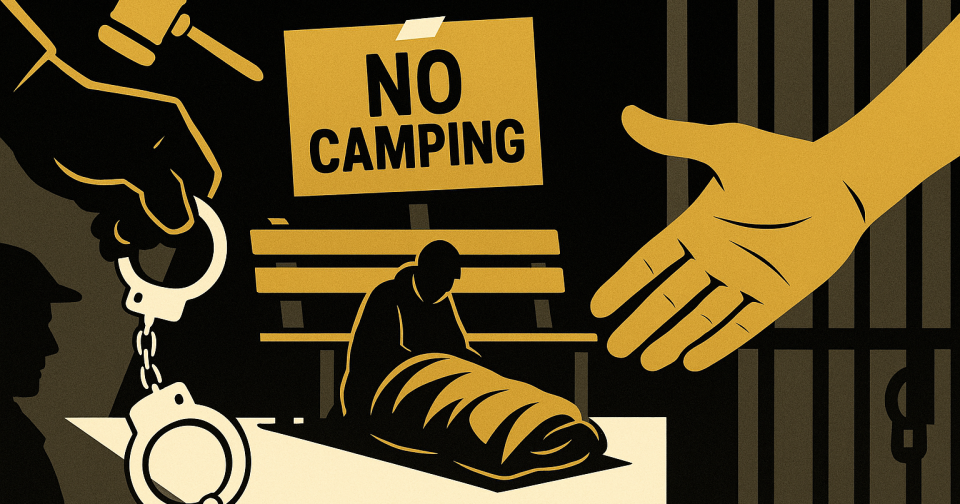You’ve lost your job, been kicked out of your apartment, have run out of options, can’t find a local shelter and desperately need a place to lay your head for the night.
The Indiana General Assembly tried to make that a crime this legislative session.
A bill that had multiple lives went through the General Assembly this year, but it was thankfully killed on the final day of the legislative session.
It would have made a Class C misdemeanor – with a penalties of up to 60 days in jail or a $500 fine – for knowingly camping, sleeping or using for “long term shelter” any government-owned land.
Effectively, this bill would have criminalized being homeless in Indiana.
The bill itself had more lives than a cat. Its original language was in a House bill that also would have blocked state funds from being spent on long-term housing for the homeless. But that bill died in committee, so its language was stuck into – and then pulled from – another Senate bill, and then was attached to house bill that was otherwise about criminal sentencing.
While many of us take for granted the ability to lay our head down in a warm bed for the night, not everyone has that luxury. Jobs are lost, relationships end, family ties are severed, and people end up without a place to go. Skyrocketing housing costs – often due to local governments’ zoning policies that restrict or prevent the building of low and middle-income housing – exacerbate the problem.
You can’t erase poverty and homelessness by criminalizing it. All you do is compound the problem while you get to look away. But those problems are still there, and people are likely suffering even more.
Maybe we should all stop looking away and realize those without homes and needing shelter often are the most desperate and vulnerable in our society.
Rather than extending a helping hand and connecting people in crisis with resources that could help, the General Assembly instead attempted to offer them jail cells. That would make getting out of this situation even more difficult, as a criminal record is often a large hurdle to finding work and housing.
While the General Assembly’s bill was killed for this legislative session, we must work to ensure it stays dead.
Meanwhile, local communities are beating them to the punch. More than 150 communities across the country have anti-homlessness ordinances, such as Elkhart’s camping ban.
Greenfield passed a similar ordinance in mid-April – and suspended rules to pass it after one reading without allowing public comment.
It criminalizes sleeping on streets, sidewalks, alleys or doorways, as well as banning camping or storing camping equipment on city-owned property – the public’s land.
A member of the Republican-controlled council, Dan Riley, said figuring out the town’s homeless issue is not “in the purview of the Greenfield City Council.” But throwing people in jail for being homeless, apparently, is.
People are not stray animals. They are humans with dignity. The most vulnerable in our society need to be pointed to resources that can help them, not be shoved into a jail cell for committing a “crime” that has no victim.
We often want to turn a blind eye to the bad things that happen in our communities, or hand-wave them away and claim “they don’t happen here.” But when there’s visible evidence they do happen – like homelessness – our governments are trying to sweep it under the rug to further the illusion. We applaud the General Assembly for killing this bill and hope it stays dead in future legislative sessions, but it never should’ve made it as far in the legislative process as it did – especially given it was revived twice within the session. But we also call on municipalities to repeal or not consider such ordinances.
With our most vulnerable, we need to extend a hand, not handcuffs.

